9 start with H start with H
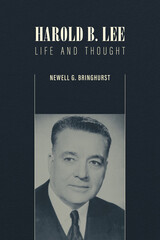
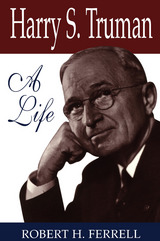
Few U.S. presidents have captured the imagination of the American people as has Harry S. Truman, “the man from Missouri.”
In this major new biography, Robert H. Ferrell, widely regarded as an authority on the thirty-third president, challenges the popular characterization of Truman as a man who rarely sought the offices he received, revealing instead a man who—with modesty, commitment to service, and basic honesty—moved with method and system toward the presidency.
Truman was ambitious in the best sense of the word. His powerful commitment to service was accompanied by a remarkable shrewdness and an exceptional ability to judge people. He regarded himself as a consummate politician, a designation of which he was proud. While in Washington, he never succumbed to the “Potomac fever” that swelled the heads of so many officials in that city. A scrupulously honest man, Truman exhibited only one lapse when, at the beginning of 1941, he padded his Senate payroll by adding his wife and later his sister.
From his early years on the family farm through his pivotal decision to use the atomic bomb in World War II, Truman’s life was filled with fascinating events. Ferrell’s exhaustive research offers new perspectives on many key episodes in Truman’s career, including his first Senate term and the circumstances surrounding the Truman Doctrine and the Marshall Plan. In addition, Ferrell taps many little-known sources to relate the intriguing story of the machinations by which Truman gained the vice presidential nomination in 1944, a position which put him a heartbeat away from the presidency.
No other historian has ever demonstrated such command over the vast amounts of material that Robert Ferrell brings to bear on the unforgettable story of Truman’s life. Based upon years of research in the Truman Library and the study of many never-before-used primary sources, Harry S. Truman is destined to become the authoritative account of the nation’s favorite president.
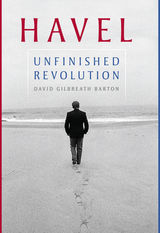
This is the story of a man who tried to resurrect the spirit of democratic life. He was born into a time of chaos and absurdity, and he took it as his fate to carry a candle into the night. This is his story and the story of many others, the writers, artists, actors, and philosophers who took it upon themselves to remember a tradition that had failed so miserably it had almost been forgotten.
Václav Havel (1936–2011), the famous Czech dissident, intellectual, and playwright, was there when a half million people came to Wenceslas Square to demand an end to Communism in 1989. Many came to hear him call for a free Czechoslovakia, for democratic elections, and a return to Europe. The demonstrators roared when he spoke. “Havel to the castle,” they chanted— meaning Havel for president. And a few weeks later, Havel became a most unusual president. He was sometimes misunderstood and not always popular, but by the time of his death in 2011, the world recognized Havel as one of the most prominent figures of the twentieth century.
Born into one of the most prominent and wealthy families in Prague, Havel was the constant subject of attention and an artistic eccentric in a family of businessmen. A young Havel and his family were cast by the Communist takeover as class enemies. Havel traveled a dark road that, ironically, provided the experiences he needed to reconnect not only to his own “ground of being” but to the traditions of civic society. This biography is the story of Havel’s inward journey in his underground years and thus the story of how Havel, the outsider, became the ultimate insider as president of the nation.
In this intimate and sweeping portrayal of Havel, David Barton reveals the eccentricities of the last president of Czechoslovakia, and the first president of the Czech Republic.
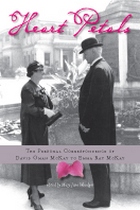
Love feeds and grows on love, and while it grows, it increases the capacity of the soul for loving. So our love was perfect when I kissed you at the altar; it is perfect to-day; it will be perfect when the century strikes ‘half-past;’ it will be perfect eternally. - from the book
David O. McKay served as president of the Church of Jesus Christ of Latter-day Saints from 1951 until his death in 1970. A devout and devoted leader, he was no less devoted to his beloved wife, Emma Ray McKay. In this collection of letters from the David Oman McKay Papers at the J. Willard Marriott Library of the University of Utah, McKay’s courtship of Emma Ray Riggs and the early days of the couple’s marriage are revealed in his own words.
The McKays were married in the Salt Lake Latter-day Saints Temple on January 2, 1901, the first “sealing” of the twentieth century. They became known as the church’s happiest couple. One of the things that cultivated that happiness were the poems and expressions of endearment McKay presented his wife, offerings he referred to as 'heart petals'. The letters collected here are replete with touching examples of those gifts of love.
Throughout this correspondence, McKay reveals his innermost feelings, joys, heartaches, and determinations, imparting a wealth of insights into his personal, caring nature and documenting his growth from a young, inexperienced missionary to a mature leader within the LDS Church. But most striking of all in these letters is the blossoming of a true, devoted love that lasted over seventy years.
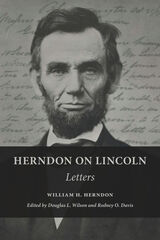
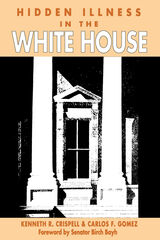
Hidden Illness in the White House contains startling new information on the severity of Roosevelt’s illness during the crucial Yalta negotiations and the fact that Kennedy suffered from Addison’s disease, a life-threatening illness, long before he was elected to the presidency. In each case the authors demonstrate that a largely successful effort was made to conceal the president’s true medical condition from the public.
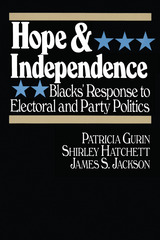
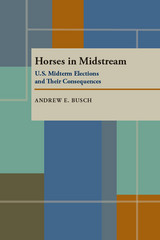
Horses in Midstream breaks the mold of midterm election literature by focusing on the consequences of midterm elections rather than on the causes of the anti-administration pattern of those elections. The book concludes that the midterm pattern has two primary consequences: it stymies the President and provides an opportunity for the revitalization of the opposition party—and that numerical losses by the President's party is really only a small part of the equation. Consequently, midterm elections can be considered an additional check in the U.S. political system, acting as a mechanism that helps to assure rough two party balance.
In examining the historical results from midterm elections dating back to 1894 and extending to the surprising result of 1994 and 1998, Busch has uncovered seven consistent ways in which the president and his party are harmed by midterm elections. These elections unfavorably alter the composition of congress, both between the parties and within the President's own party; they deprive the President of the plebiscitary power derived from his original electoral mandate; they give an intangible sense of momentum to the opposition party, leading to renewed opportunities for the opposition to put forward new leaders and to develop winning issues; they exacerbate splits within the President's own party; and they provide the opposition party with expanded party-building opportunities at the state level. Busch also places the midterm elections into four categories: "preparatory" midterms, which contribute to a subsequent change in party control of the Presidency; "calibrating" midterms in which voters slow but do not reverse extraordinary periods of Presidentially-driven change; "normal" midterms when midterm elections stymie the President without contributing to a White House takeover; and the rare "creative exceptions" when an administration escapes the midterm curse at the polls and find themselves invigorated rather than weakened. Busch's new approach to midterm elections, his well supported conclusions, and his clear, consistent style will certainly be of interest to political scientists and will translate well to the classroom.
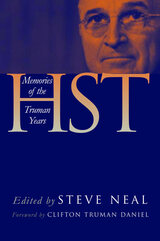
Believing that Americans should understand their leadership, Harry Truman was the first American president to authorize an oral history of his life and times. In that vein, almost forty years ago, the Truman Library in the president’s native Independence, Missouri, began the daunting task of compiling the words of Truman’s contemporaries, including his senior aides, foreign policy and military advisors, political strategists, and close friends. Longtime Chicago journalist Steve Neal has edited twenty of these remarkable interviews for HST: Memories of the Truman Years.
Candid and insightful, the recollections include those of statesmen Dean Acheson and Averell Harriman; soldiers Omar Bradley and Lucius Clay; Truman’s best friend Thomas Evans; associates Clark Clifford and Matt Connelly; 1948 Republican vice-presidential nominee Earl Warren; artist Thomas Hart Benton; West German leader Konrad Adnauer; former New Dealers Sam Rosenman and James Rowe; journalist Richard L. Strout; and many others.
An honest portrait of Truman emerges from the twenty firsthand accounts of those who knew him best. HST: Memories of the Truman Years spans Truman’s rise to the presidency and his responses to the challenges of World War II, the Soviet blockade of Berlin, the rebuilding of postwar Europe, the 1948 campaign, his controversial firing of General Douglas MacArthur, and his courageous leadership on civil rights.
“The goal of these histories,” explains Truman’s grandson, Clifton Truman Daniel, in the foreword, “in keeping with Grandpa’s stated desire that the [Truman Library] be about his presidency, not a monument to him, was to preserve forever the perspective of those who had shared his life and times and, in many cases, helped him shape the world.”
READERS
Browse our collection.
PUBLISHERS
See BiblioVault's publisher services.
STUDENT SERVICES
Files for college accessibility offices.
UChicago Accessibility Resources
home | accessibility | search | about | contact us
BiblioVault ® 2001 - 2024
The University of Chicago Press









